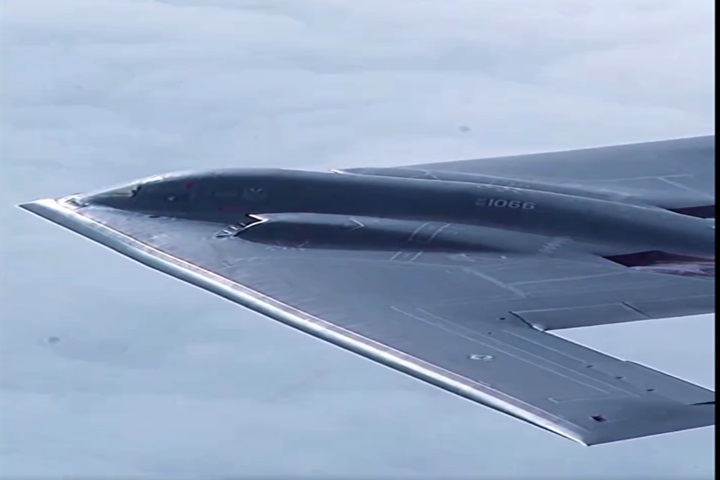In a cautious move, the Pentagon has held off on authorizing a military strike despite deploying advanced U.S. Air Force B-2 Spirit stealth bombers to Andersen Air Force Base in Guam.
This strategic decision comes as tensions with Iran escalate, highlighting the delicate balance between military readiness and diplomatic efforts.
According to U.S. Central Command (CENTCOM) officials, all preparations for potential operations against Iran are complete, putting forces on high alert.
However, the final order hinges on President Donald Trump’s approval, reflecting the administration’s measured approach to the crisis.
The B-2 Spirit bombers, capable of delivering both conventional and nuclear payloads, significantly bolster U.S. military strength in the region.
Yet, the absence of a strike order suggests Washington is prioritizing diplomatic pressure over immediate action, keeping its options open.
CENTCOM leaders have stressed that while troops stand ready to act, the choice lies with the President.
This preparedness underscores the gravity of the situation, even as the U.S. continues to seek a peaceful resolution through dialogue.
Recent weeks have seen heightened friction between the U.S. and Iran, fueling fears of a broader conflict.
Despite the military buildup, diplomatic channels remain active, with both sides reportedly working behind the scenes to ease tensions.
The international community remains on edge, urging restraint while closely monitoring developments.
For now, the world watches as President Trump weighs his next move—whether to escalate militarily or pursue a negotiated settlement.
The stakes are high, and the path forward will shape regional stability for years to come.
Meanwhile, allies and global leaders are calling for de-escalation, emphasizing the risks of unchecked confrontation.
The U.S. military’s visible readiness serves as both a deterrent and a bargaining chip, reinforcing Washington’s position in ongoing talks.
As the situation unfolds, experts warn that miscalculations could quickly spiral into conflict.
The Pentagon’s restraint, however, signals a preference for diplomacy—at least for now.
The coming days will prove critical in determining whether cooler heads prevail or hostilities erupt.
Ultimately, the decision rests with President Trump, whose next steps will define this tense chapter in U.S.-Iran relations.
Until then, the world waits, hoping for a peaceful resolution amid the looming shadow of war.







